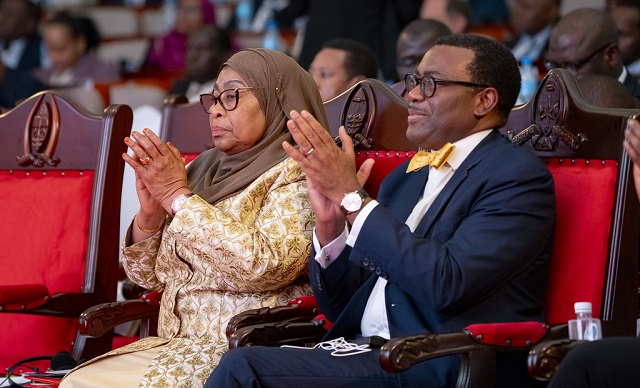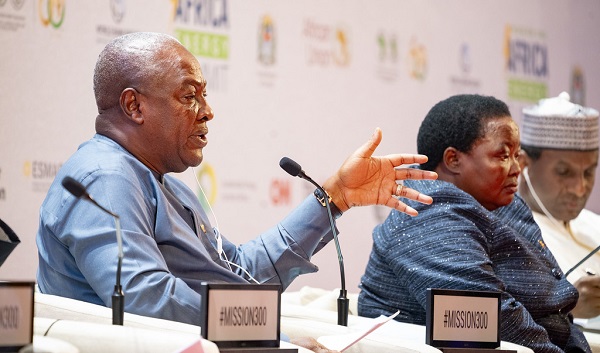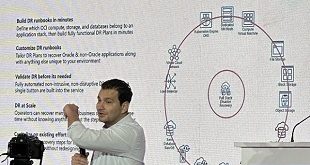
Currently, close to 600 million Africans lack electricity, a critical resource for economic development
ANALYSIS | RONALD MUSOKE | The World Bank and the African Development Bank (AfDB) have pledged US$50 billion to provide electricity access to nearly 300 million Africans over the next five years, through an initiative known as “Mission 300.” This commitment was announced during the Africa Energy Summit, held in Dar es Salaam, Tanzania, on January 27-28.
The financing efforts were further bolstered by additional pledges from international financial institutions, including the French Development Agency (€1 billion), the Asian Infrastructure Investment Bank (US$1-1.5 billion), the Islamic Development Bank (US$2.65 billion), and the OPEC Fund (US$1 billion).
As part of the initiative, the two lead financiers also introduced Zafiri, an investment company designed to support private sector-led solutions, such as renewable mini-grids and solar home systems. Zafiri’s anchor partners are expected to invest up to US$300 million in its first phase, with plans to mobilize up to US$1 billion to bridge Africa’s persistent equity gap.
There were also other firm commitments made by up to 30 African governments and partners at the summit. The governments pledged to initiate reforms, increase financing, and leverage public-private partnerships in order to deliver tangible benefits to millions of people across the continent.
Energy poor Africans
Currently, close to 600 million Africans lack electricity, a critical resource for economic development and job creation. According to a brief on Africa’s energy deficit published by the Mo Ibrahim Foundation in 2022, reliable grids, that do not fluctuate, are essential for economic development and delivering public services such as healthcare.
But the narrow scope of the global response to climate change, that in practice has not accounted for the world’s disparate energy needs and differing responsibilities, are hindering African countries’ efforts to achieve their development goals.
Only 55.7% of the 1.4 billion people living in Africa have access to electricity, leaving over 600 million on the continent with no access to electricity. This is about twice the total population of the US.
Meanwhile, those with access to electricity continue to incur huge bills, with the average electricity costs of running a modern fridge in Africa said to be 2.6% of average annual income, more than five times the global average rate.
Outages also make supply unreliable. Over a quarter of those connected to the grid only have access half of the time or less. Estimates suggest electric shortages cost the continent about two to four percent of gross domestic product (GDP) a year.
In addition, Africa has the lowest access to clean cooking of any region globally, at less than one in three people. In total, over 930 million in Africa lack access to clean cooking fuels. This is more than Europe’s entire population and three times that of the US.
Experts say Africa’s growing energy demand is inescapable, given demographic trends and development plans. Africa’s population is, for instance, projected to almost double by 2050 and increase three-fold by 2100. This will mean more people needing energy to cook their meals light their homes, travel, power business and create jobs.
Practical solutions
Speaking during the first panel discussion of the opening day of the two-day Summit, AfDB president, Dr. Akinwumi Adesina, set the summit’s tone of action and implementation, emphasizing practical solutions to achieve the ambitious goal, from regulatory reforms to private sector engagement. He called for active involvement from a wide range of stakeholders, including bilateral and multilateral institutions, private sector entities, civil society organizations, and foundations.
“This is mission critical… Our mission here is to say we need everybody… It is not about us, it’s about those who are not here, and we must listen, hear, and make sure this is an action-driven summit.”

“We can’t do Mickey Mouse business…We can’t have a situation where Africa does not have enough electricity,” Dr. Adesina told the audience, which included several African energy ministers, international development partners and private sector officials, civil society organizations, and foundations.
“Critical reforms will be needed to expand the share of renewables, improve utility performance utilities, ensure transparency in licensing and power purchase agreements, and establish predictable tariff regimes that reflect production costs,” Dr. Adesina said.
He added: “Our collective effort is to support you, heads of state and government, in developing and implementing clear, country-led national energy compacts to deliver on your visions for electricity in your respective countries.”
The AfDB president said the new initiative has a clear path to reach the 300 million people. He emphasized that the programme seeks to transform Africa’s vast potential into reality through comprehensive electrification. “With power, Africa will not just meet expectations but exceed them, becoming a competitive and prosperous continent,” he added.
Mission 300 will incorporate robust accountability measures, including country-specific monitoring and evaluation systems and the Africa Energy Regulatory Index to track progress, Dr. Adesina said.
600,000 deaths due to smoke
Adesina also highlighted the devastating toll of traditional cooking methods based on firewood and charcoal, resulting in the death of 600,000 women and children annually due to smoke exposure. The crisis, Dr. Adesina said, extends beyond energy access, affecting environmental sustainability through deforestation and biodiversity loss.
“It’s not just about energy transition,” Adesina said. “This is about dignity. Africa must develop with dignity and pride, and access to clean cooking solutions is fundamental to achieving this goal.” He praised Tanzania for developing a comprehensive national strategy to address this issue.
Also attending the summit in Dar es Salam was Ajay Banga, the World Bank president. He expressed optimism about the initiative, saying its ambitious objectives are achievable through hard work, particularly in ensuring a conducive environment for the private sector to participate. Banga said the need for predictability of currencies, regulatory frameworks and land acquisition to incentivize investments supporting Mission 300.

“Access to electricity is a fundamental human right. Without it, countries and people cannot thrive,” he said. “Our mission to provide electricity to half of the 600 million people in Africa without access is a critical first step. To succeed, we must embrace a simple truth: no one can do it alone. Governments, businesses, philanthropies, and development banks each have a role—and only through collaboration can we achieve our goal.”
Electrifying rural communities
Speaking on the sidelines of the summit, United Nations Deputy Secretary-General Amina Mohammed noted that energy access is not merely about power delivery, but about what that power will connect and enable. “It is important that we see food systems at the helm of all of this, and that they are powered by the energy that you will connect,” she said.
Mohammed explained how energy connectivity would catalyze transformative change in rural communities, particularly for women and youth, through access to digital financial services, online education, and e-commerce opportunities.
However, she stressed that realizing these ambitions would require significant financial engineering and private sector engagement. “The private sector’s got to lean in and it won’t lean in if the message is that your finance environment is not conducive to us,” she noted, calling for reforms in credit rating systems and financial architecture
“When you want to put together the financing for energy it is not easy and it requires many people at the table in parallel with what we are doing, the policy and the regulation, designing these pipelines and getting the money ready,” Amina said.
30 African Govt commitments
Meanwhile, 30 heads of state and government committed to concrete reforms and actions to expand access to reliable, affordable, and sustainable electricity to power economic growth, improve quality of life, and drive job creation across the continent.
Twelve countries—Chad, Côte d’Ivoire, Democratic Republic of Congo, Liberia, Madagascar, Malawi, Mauritania, Niger, Nigeria, Senegal, Tanzania, and Zambia—presented detailed National Energy Compacts that set targets to scale up electricity access, increase the use of renewable energy and attract additional private capital.

These country-specific plans are time-bound, rooted in data, endorsed at the highest level and focus on affordable power generation, expanding connections, and regional integration. They aim to boost utility efficiency, attract private investment, and expand clean cooking solutions. Deploying satellite and electronic mapping technologies, these compacts identify the most cost-effective solutions to bring electricity to underserved areas.
“Tanzania is honoured to have hosted such a monumental summit to discuss how, as leaders, we will be able to deliver on our promise to our citizens to provide power and clean cooking solutions that will transform lives and economies,” said President Samia Suluhu Hassan of Tanzania.
Dar es Salaam Energy Declaration
The summit delivered two significant outcomes; the Dar es Salaam Energy Declaration which outlines commitments and practical actions from African governments to reform the energy sector, and the first set of “National Energy Compacts,” which will serve as blueprints with country-specific targets and timelines for implementation of critical reforms.
The Dar es Salaam Energy Declaration represents a key milestone in addressing the energy gap in Africa, where more than 600 million people currently live without electricity. The commitments in the Declaration are a critical piece of the Mission 300 initiative, which unites governments, development banks, partners, philanthropies, and the private sector to connect 300 million Africans to electricity by 2030.
The Declaration will now be submitted to the African Union Summit in February for adoption. By addressing the fundamental challenge of energy access, Mission 300 serves as the cornerstone of the jobs agenda for Africa’s growing youth population and the foundation for future development.
However, experts say implementing the “National Energy Compacts” will require political will, long-term vision and the full support from Mission 300 partners. Governments will also have to pave the way through comprehensive reforms, complemented by increased concessional financing and strategic partnerships with philanthropies and development banks to catalyze increased private sector investment.
The Mission 300 Africa Energy Summit which attracted about 1500 delegates was hosted by Tanzania, the African Union, the African Development Bank Group (AfDB), and the World Bank Group (WBG), with support from the Rockefeller Foundation, ESMAP, Global Energy Alliance for People and Planet (GEAPP), Sustainable Energy for All (SEforALL) and the Sustainable Energy Fund for Africa.
 The Independent Uganda: You get the Truth we Pay the Price
The Independent Uganda: You get the Truth we Pay the Price



